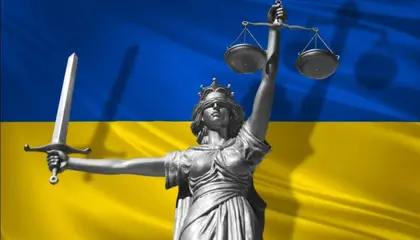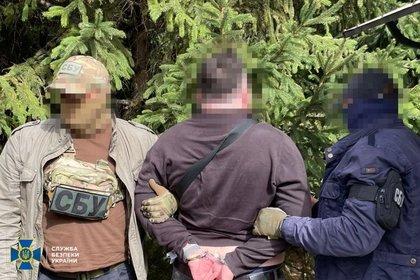From the Editors: In June 2023, the Pioneer Legal Center in Boston sponsored a public forum on the subject of judicial and legal reform in Ukraine. It featured retired Massachusetts Supreme Court Justice Robert Cordy, one of the foreign experts tasked to help reform Ukraine’s judiciary, along with former Assistant US Attorney and former Special Advisor to Ukraine’s Prosecutor General Bohdan Vitvitsky. The latter has shared his remarks with Kyiv Post and we are publishing an edited version of them below.
- Find the latest Ukraine news published as of today.
- Russian Losses in Ukraine War
First, some background information on Ukraine and its legal system. The first question that might arise is: Why would a country 4,500 miles from Boston need and want the help of a US State Supreme Court justice, or anyone else for that matter, to help reform a part of its own legal system?
JOIN US ON TELEGRAM
Follow our coverage of the war on the @Kyivpost_official.
Ukraine’s mathematicians are world class. Its engineers built and flew the Mriya, the largest airplane on earth, which the Russians destroyed 16 months ago during the initial stages of their full-scale invasion. So, no need for Ukraine to import engineers to help them reform their engineering.
What about doctors and medicine? Actually, prior to the Russian invasion, Ukrainian medical schools were training thousands of medical students from the Caribbean, Africa and Asia, so probably no need there.
So why the need to help reform the legal system? Somewhat paradoxically, the reason Ukraine needs such help is somewhat different from why it wants such help.
When in 1776, the thirteen colonies in North America shed their colonial past and created a new country, our United States, they were endowed with a very substantial blessing. But when in 1991, over two centuries later, Ukrainians shed their colonial past and created an independent country, Ukraine, they were burdened with a most substantial curse.
The blessing endowed upon the US was the opportunity to adopt – lock, stock and barrel – the English legal system. The curse with which Ukraine was and has been burdened was the Soviet “legal system.”
English example
Whatever its various flaws, only some of which Charles Dickens lampooned in his 19th century novels, the English legal system is nevertheless rooted in neutral principles, facts and reason. It had, for many centuries, genuinely struggled to develop a way in which to address disputes between the State and its citizens, and between or among its own citizens.
A product of that system, and one of Boston’s most justifiably famous native sons, John Adams, in 1770 agreed to defend the British officer and the British soldiers who were involved in the Boston Massacre. Despite his strong antipathy to British rule. Adams agreed to defend the accused Britons because he believed that everyone, friend or foe, deserved justice in the form of a fair trial. He not only agreed to represent the British defendants, but he actually got most of them acquitted.
Ironically, and later tragically for the millions who lived in the Soviet Union, the ideological founding father of the Soviet Union was Karl Marx. I say ironically because Marx spent the last 34 years of his life in the second half of the 19th century living in London, England. Yet it completely escaped his notice that the English legal system, again, with all of its shortcomings and however imperfectly, was actually a real thing, that is, a legal system that genuinely sought and struggled to achieve the pursuit of justice.
But Marx had years earlier concluded that Western legal systems in capitalist countries were completely phony and that, instead of pursuing justice, they were merely camouflaged systems geared towards advancing the interests of the ruling classes. He therefore prescribed that when the revolution came, existing capitalist, i.e., Western, legal systems should be tossed into the trash bin. And that’s exactly what happened after 1917 when Vladimir Lenin, Leon Trotsky and their Bolshevik co-conspirators, staged their coup and then revolution.
Legalized lawlessness
The existing Czarist Russian legal system, which, ironically, had undergone some real reforms in the 1860s, was tossed out and a new Soviet system was gradually substituted. But it was a system designed and conducted with one thing in mind: to serve and defend the interests of the ruling Communist Party and the Soviet State.
That is why, in that system, what prevailed was so-called telephone justice. The Soviet prosecutor, who was the alpha male in that system, would call the judge assigned to the case and tell him or her what the outcome was expected to be, and that’s how things operated, and that’s the system that Ukraine inherited in 1991 when it became independent. It was a system that the Harvard historian of the Soviet Union Richard Pipes aptly described as a system of legalized lawlessness.
A year after Ukraine became independent, I gave a presentation before the first international convention of Ukrainian lawyers in Kyiv. I detailed what would happen if I, a recently appointed and proud federal prosecutor, were to abuse my position for personal gain, and how it was essential for the rule of law that such guardrails existed. Later that evening, a group of Ukrainian prosecutors came to tell me how strange and foolish I was to think that prosecutors should have to operate under any kind of restrictions.
In addition to the so-called Soviet legal system actually being an instrumental one, its other fundamental flaw was its Orwellian character. If the Soviets had simply come clean up front and declared that the Soviet Union didn’t need a legal system, and that only capitalist countries needed one order to fool their workers with distractions about the pursuit of supposed justice, then post-Soviet legal reforms would have been so much easier to install. Reformers could have started from scratch and try to build a whole new system.
But no. The Soviets had law schools, numerous statute books and people who played the roles of judges, prosecutors and defense lawyers. So, any and every legal reform effort in a post-Soviet country has had to deal with remnants of that entire structure of legalized lawlessness. Its practitioners are used to pretending that what they are doing is something related to the pursuit of justice.
This was the system with which Ukraine – having endured invasion and occupation by the Russian Bolsheviks between 1918 and 1923 and incorporation into the Soviet Union – was cursed. At the outset, Western legal reformers who came to Ukraine thought the solution was simply to free Ukrainian judges from control by prosecutors, which would in turn allow the rule of law to flourish.
But things were not so simple. Everyone who had been brought up in the Soviet legal system was taught and could daily see that what was called the legal system was entirely instrumental. In other words, that it existed to advance specific interests having nothing to do with what we understand to be the pursuit of justice. From their perspective, the idea of justice was a Western fantasy or ruse.
So, after the Soviet Union dissolved and the legal system in a country such as Ukraine no longer had to serve the interests of the Communist Party and the Soviet government, it was to some degree privatized. It was seen and used by a significant number of judges and prosecutors as an instrument to protect and advance their own interests, the interests of their clan or political allies, or the interests of those who could pay them the most under the table.
All of this explains why a post-Soviet country such as Ukraine might need the help of individuals such as Justice Cordy. But that doesn’t explain why Ukraine would want such help. It wants such help because, in contrast to Russia, Ukraine has for the last 30 years developed a strong civil society and a free media that now passionately insists on Ukraine becoming a rule of law country – a country that desperately wants to return to Europe and that keeps pushing for the adoption of real and meaningful reform to scale back corruption and promote the rule of law.
That is, in part. what the Orange Revolution was about in 2003-04, and that is certainly what the Revolution of Dignity was all about in 2013-14.
Bohdan Vitvitsky holds a Ph.D. in philosophy and a Juris Doctor, both from Columbia University.
The views expressed are the author’s and not necessarily of Kyiv Post.
You can also highlight the text and press Ctrl + Enter







